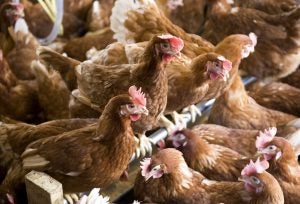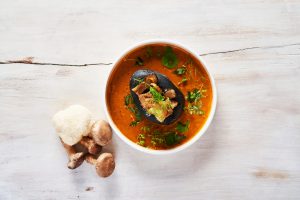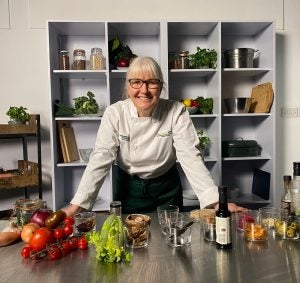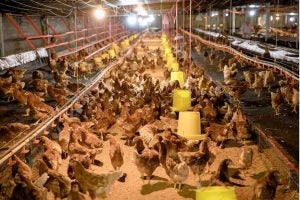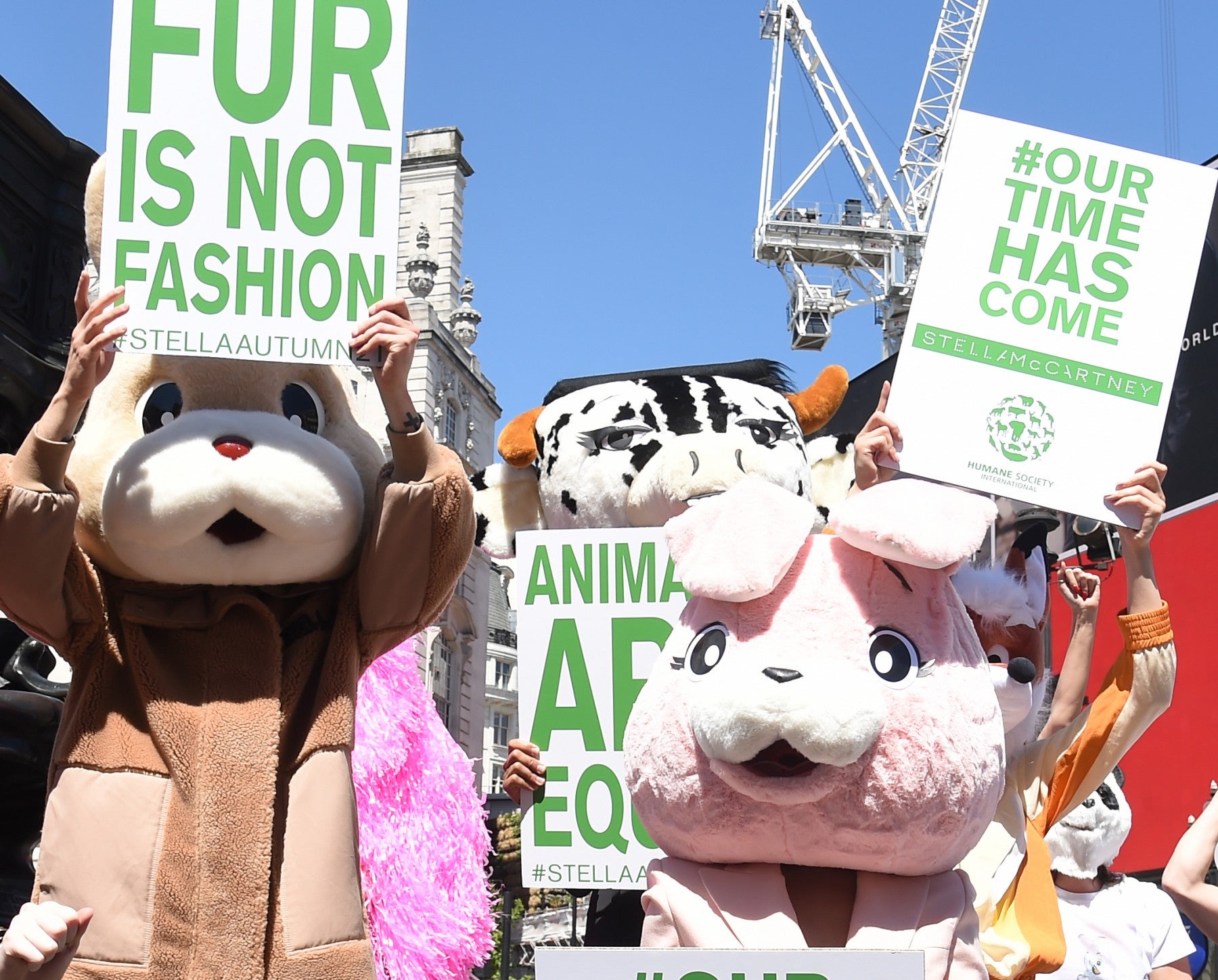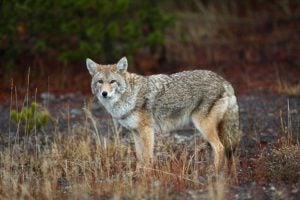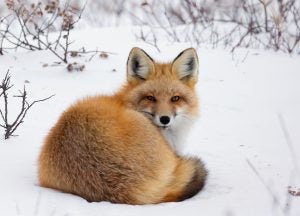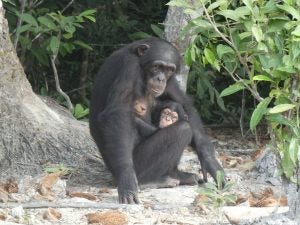
LIBERIA—Animal protection charity Humane Society International, and its sanctuary Second Chance Chimpanzee Refuge Liberia, are celebrating World Chimpanzee Day with a moving tribute to colleague Joseph Thomas who died in January this year after more than 40 years of dedicated care for over 60 retired chimpanzees in Liberia who were formerly used in invasive biomedical research. SCCRL and HSI are now embarking on an exciting new phase of sanctuary development with architectural and construction plans to build a veterinary clinic and new facilities on the chimpanzees’ island homes.
Joseph first met the chimps in 1979 when he began work at the research facility where they were being used in experiments. When civil war broke out in Liberia, and then years later Ebola devastated the country, Joseph and other local workers stayed behind at the facility and risked their own lives to care for the chimps. In the mid-2000s Joseph helped to relocate the chimpanzees to six estuary islands in the Farmington and Little Bassa rivers in western-central Liberia as research on them was being phased out. In 2015, when the research company’s funding for the animals came to an end, it was Joseph who signaled an international plea for help while he did his best to gather local resources to continue feeding the chimpanzees. His plea reached the attention of Humane Society International who stepped in to provide initial emergency funding to save the chimps. HSI has since committed to their lifetime care.
Dr. Richard Ssuna, veterinarian for Second Chance at Humane Society International, says: “These chimpanzees cannot fend for themselves because originally they were taken from the wild as babies or bred in captivity, and the islands do not have sufficient natural food sources. If Joseph and his team had not stayed behind during the civil war to feed them with whatever fruits and vegetables they could source in local markets, these animals would have starved to death. Joseph had a remarkable bond with the chimps, he knew every single one of them by name and personality. They trusted him enormously, and throughout all the years of conflict and turmoil they endured, Joseph was their one constant. His passing leaves a huge hole in our hearts and in our team, but we are determined to make Joseph proud and continue his amazing legacy.”
HSI’s team of 30 staff in Liberia provide around the clock care for the chimpanzees including preparing and feeding a nutritious diet twice a day, providing security around the chimps’ island homes, and administering high quality veterinary care and birth control programs.
HSI is now also embarking on an exciting new phase of sanctuary development, with architectural and construction plans to build a veterinary clinic and new facilities on the chimpanzees’ island homes. HSI’s new infrastructure project has now been granted the government permission it needs to go ahead, marking a new chapter for the sanctuary and the major, multi-year undertaking of temporarily relocating the chimps while construction takes place on the islands.
Amanda Gray, Second Chance program manager at Humane Society International, says: “Second Chance provides a near wild existence in mangrove forests where the chimps can roam freely, live together in social groups, and even make treetop nests at night. Some chimps like Samantha, Jiminy Cricket and Brutus are more than 40 years old, so they’ve been through a lot. But they’ve all been transformed from the malnourished, desperate chimps we first met to healthy, happy, thriving animals. We are committed to providing them with lifelong care, which could be another 60 years, so our project to build new facilities on the islands will ensure they get the best of care into the future.”
The legacy of Joseph Thomas’s love for the chimpanzees also lives on in HSI’s community education work in Liberia. HSI runs humane education programs in 25 communities and 12 schools to promote kindness and respect for animals and the environment. HSI’s Dr. Ssuna also provides regular free veterinary care and vaccinations for community dogs and cats, and the charity funds community initiatives such as repairing the local road, providing sanitation equipment to help COVID-19 prevention, as well as recruiting staff and procuring food locally for the sanctuary.
Gray concludes: “We are deeply indebted to Joseph for his tireless commitment to the chimpanzees for over 41 years and for the sacrifices he made to ensure their safety. It is truly because of his heroic dedication and devotion that the chimps in our care are alive today. The chimpanzees and his fellow teammates at Second Chance were like family to Joseph, and he was family to us.”
Please visit hsi.org to learn more about the chimpanzees and to support our work to help them and to help animals around the world.
Download Photos and Video of Joseph Thomas and the Chimpanzees
Watch the Tribute to Joseph Thomas
Learn More About Second Chance Chimpanzee Refuge Liberia
ENDS
Media contact: Wendy Higgins: whiggins@hsi.org

